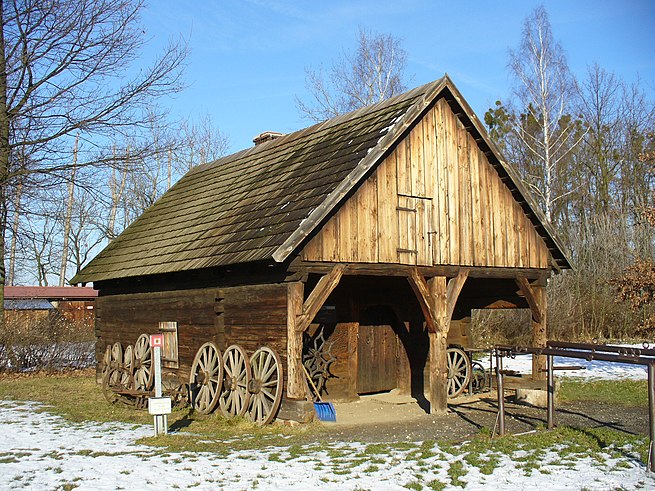
Main Difference
The main difference between Forge and Furnace is that the Forge is a workplace of a blacksmith and Furnace is a device used for heating in industry
-
Forge
A forge is a type of hearth used for heating metals, or the workplace (smithy) where such a hearth is located. The forge is used by the smith to heat a piece of metal to a temperature where it becomes easier to shape by forging, or to the point where work hardening no longer occurs. The metal (known as the “workpiece”) is transported to and from the forge using tongs, which are also used to hold the workpiece on the smithy’s anvil while the smith works it with a hammer. Sometimes, such as when hardening steel or cooling the work so that it may be handled with bare hands, the workpiece is transported to the slack tub, which rapidly cools the workpiece in a large body of water. However, depending on the metal type, it may require an oil quench or a salt brine instead; many metals require more than plain water hardening. The slack tub also provides water to control the fire in the forge.
-
Furnace
A furnace is a device used for high-temperature heating. The name derives from Latin word fornax, which means oven. The heat energy to fuel a furnace may be supplied directly by fuel combustion, by electricity such as the electric arc furnace, or through induction heating in induction furnaces.
In American English and Canadian English usage, the term furnace refers to the household heating systems based upon a central furnace, otherwise known either as a boiler, or a heater in British English. Furnace may also be a synonym for kiln, a device used in the production of ceramics.
In British English, a furnace is an industrial furnace used for many things, such as the extraction of metal from ore (smelting) or in oil refineries and other chemical plants, for example as the heat source for fractional distillation columns. The term furnace can also refer to a direct fired heater, used in boiler applications in chemical industries or for providing heat to chemical reactions for processes like cracking, and is part of the standard English names for many metallurgical furnaces worldwide.
-
Forge (noun)
Furnace or hearth where metals are heated prior to hammering them into shape.
-
Forge (noun)
Workshop in which metals are shaped by heating and hammering them.
-
Forge (noun)
The act of beating or working iron or steel.
-
Forge (verb)
To shape a metal by heating and hammering.
-
Forge (verb)
To form or create with concerted effort.
“The politician’s recent actions are an effort to forge a relationship with undecided voters.”
-
Forge (verb)
To create a forgery of; to make a counterfeit item of; to copy or imitate unlawfully.
“He had to forge his ex-wife’s signature.”
“The jury learned the documents had been forged.”
-
Forge (verb)
To make falsely; to produce, as that which is untrue or not genuine; to fabricate.
-
Forge (verb)
(often as forge ahead) To move forward heavily and slowly (originally as a ship); to advance gradually but steadily; to proceed towards a goal in the face of resistance or difficulty.
“The party of explorers forged through the thick underbrush.”
“We decided to forge ahead with our plans even though our biggest underwriter backed out.”
-
Forge (verb)
(sometimes as forge ahead) To advance, move or act with an abrupt increase in speed or energy.
“With seconds left in the race, the runner forged into first place.”
-
Furnace (noun)
An industrial heating device, e.g. for smelting metal or baking ceramics.
-
Furnace (noun)
A device that provides heat for a building; a space heater.
-
Furnace (noun)
Any area that is excessively hot.
-
Furnace (noun)
A place or time of punishment, affliction, or great trial; severe experience or discipline.
-
Furnace (verb)
To heat in a furnace.
-
Furnace (verb)
To exhale like a furnace.
